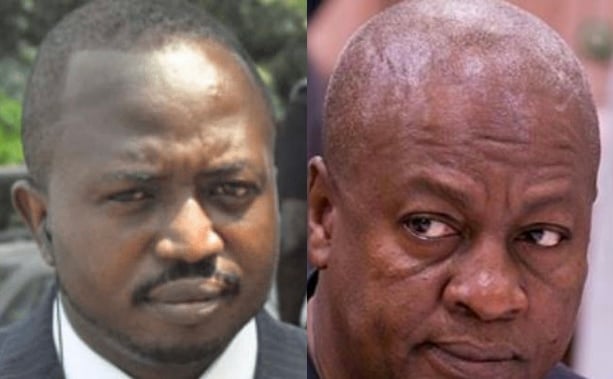Stephen Atubiga, a former member of the National Democratic Congress (NDC) and current leader of the National Liberation Congress (NLC), has publicly criticized the NDC’s approach to campaigning for the upcoming 2024 elections. In a recent social media post dated November 6, Atubiga expressed his concerns regarding the party’s leadership and particularly singled out former President John Dramani Mahama’s campaign style. He argued that Mahama is conducting his campaign with an air of complacency, as if he were already an incumbent or had secured victory in the forthcoming elections. Atubiga perceives this attitude as disconnected from the grassroots realities faced by the party’s supporters.
Atubiga’s critique extended beyond Mahama’s demeanor, highlighting a broader issue within the party’s campaign strategy. He lamented that many experienced and longtime members of the NDC have been sidelined during the current campaign, which he believes undermines the party’s unity and cohesion. This lack of inclusion, according to Atubiga, is detrimental to the overall effectiveness of the campaign, particularly as seasoned campaigners who have contributed to past NDC victories appear to have been neglected or overlooked. The absence of these influential figures could potentially weaken the party’s ability to rally support across different demographics.
Moreover, Atubiga expressed disappointment over the apparent disregard for past presidential aspirants within the NDC. He sees these individuals as vital to garnering wide-ranging support for the party’s campaign. By failing to engage former candidates, Atubiga suggests that the NDC risks alienating a segment of its base that might otherwise contribute positively to the campaign’s success. His assertion indicates a lack of strategy that could integrate valuable insights from those with prior experience in high-stakes elections, which could be pivotal for garnering voter enthusiasm and commitment.
The critique points to a critical disconnect between the party’s current leadership and its historical foundation, as Atubiga emphasized that successful strategies from previous elections have not been utilized in the current campaign efforts. He highlighted that the NDC’s victory machinery, which saw the party through successful elections in 1992, 1996, 2008, and 2012, either has not been invited to contribute or has been dismissed. By dismissing experienced members, Atubiga warns that the NDC is losing out on essential knowledge and strategies that could bolster their candidacy in 2024.
Additionally, Atubiga called attention to the lack of communication between Mahama and sitting Members of Parliament (MPs) or parliamentary candidates. He noted that these individuals often do not have a means to communicate with the party’s candidate for direction or support, which could foster a sense of disenfranchisement within the ranks of the NDC. Such disconnect not only affects morale but also undermines potential grassroots mobilization efforts, as candidates at local levels may feel unsupported in their efforts to engage voters.
Ultimately, Atubiga’s comments serve as a stark warning to the NDC regarding the potential consequences of its current campaigning strategy. His insights advocate for a more inclusive approach that leverages the experience of longstanding party members, engages past presidential candidates, and fosters open communication among party ranks. If the NDC aims to restore unity and bolster its electoral chances in the 2024 elections, Atubiga argues, it must reconsider its current approach and ensure that all voices within the party are heard and valued.


